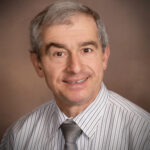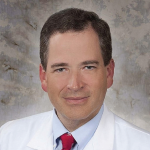State-level wins that ensure immunosuppressed patients can access COVID-19 vaccination show the power of coordinated efforts by volunteer leaders, staff and members to translate the ACR’s work into actionable public policy recommendations, then amplify those messages through member engagement.
Search results for: Telemedicine

Pediatric Rheumatology Workforce Challenges in the Dakotas
Pediatric rheumatologists are few and far between in rural America. Financial incentives, such as loan repayment, may help draw more providers to the subspecialty and the underserved regions of the U.S.

Highlights, Pearls & News from ACR Convergence 2020
ACR CONVERGENCE 2020—In a year like no other, the 2020 virtual ACR Convergence was a meeting like no other. Nonetheless, the meeting introduced a healthy mix of clinical insights and take-home pearls, according to panelists in the meeting’s closing session, Bright Future: Discovery & Growth. In this session, panelists discussed some of the biggest news…
German Society Updates Rheumatic Diseases Guidelines in Light of COVID-19 Pandemic
NEW YORK (Reuters Health)—The German Society for Rheumatology (DGRh) has updated its guidelines to reflect the recent impact of the pandemic, noting among its key changes that immunosuppressive medications should not be changed solely for fear of SARS-CoV-2 infection.1 The update is based on evidence from scientific data from registries, cross-sectional studies, case reports and…

Wisconsin Rheumatology Association Targets Rural Workforce Shortages, Advocacy Needs
Now in its 16th year, the Wisconsin Rheumatology Association engages and supports rheumatology professionals through advocacy sessions, annual meetings and continuing medical education-accredited events.

The ACR’s 2020 Advocacy Year in Review
To say it has been an interesting (the science and the memes), tumultuous (the politics) and heartbreaking (the pandemic and social injustice) year is an understatement. There have been moments of grace and inspiration that we hope have kept everyone going. As we look to 2021, we take lessons from our experiences in 2020. Washington,…
What to Expect in State Legislatures in 2021
New state legislatures face many continuing issues, including budget shortfalls, vaccine distribution problems and strained healthcare infrastructure. However, opportunities exist for significant policy wins for rheumatology, particularly on the issues of step therapy reform, telemedicine and copay accumulators.
Successful Resolutions, Policy Updates at AMA House of Delegates 2020 Interim Meeting
At the virtual interim meeting Nov. 13–17, the ACR delegation led a successful bid to update American Medical Association policies on home infusion and copay accumulators and supported efforts against the Most Favored Nation drug pricing model.

Winter 2021’s Awards, Appointments & Announcements in Rheumatology
New Appointments for Carlos Lozada, MD In the midst of the coronavirus pandemic, Carlos J. Lozada, MD, FACP, FACR, professor of clinical medicine, University of Miami Miller School of Medicine, has expanded his professional and volunteer duties. In May he was appointed chief (interim) of the Division of Rheumatology at the Miller School of Medicine,…

‘Communication Is More Important Than Ever’: A Q&A with Howard M. Busch, DO
As founder and president of a large rheumatology group, Howard M. Busch, DO, says the pandemic has had a limited financial effect on many of the network’s clinics. Communication and technology have been key to adapting to the needs of patients and connecting with other providers during this critical time.
- « Previous Page
- 1
- …
- 11
- 12
- 13
- 14
- 15
- …
- 23
- Next Page »